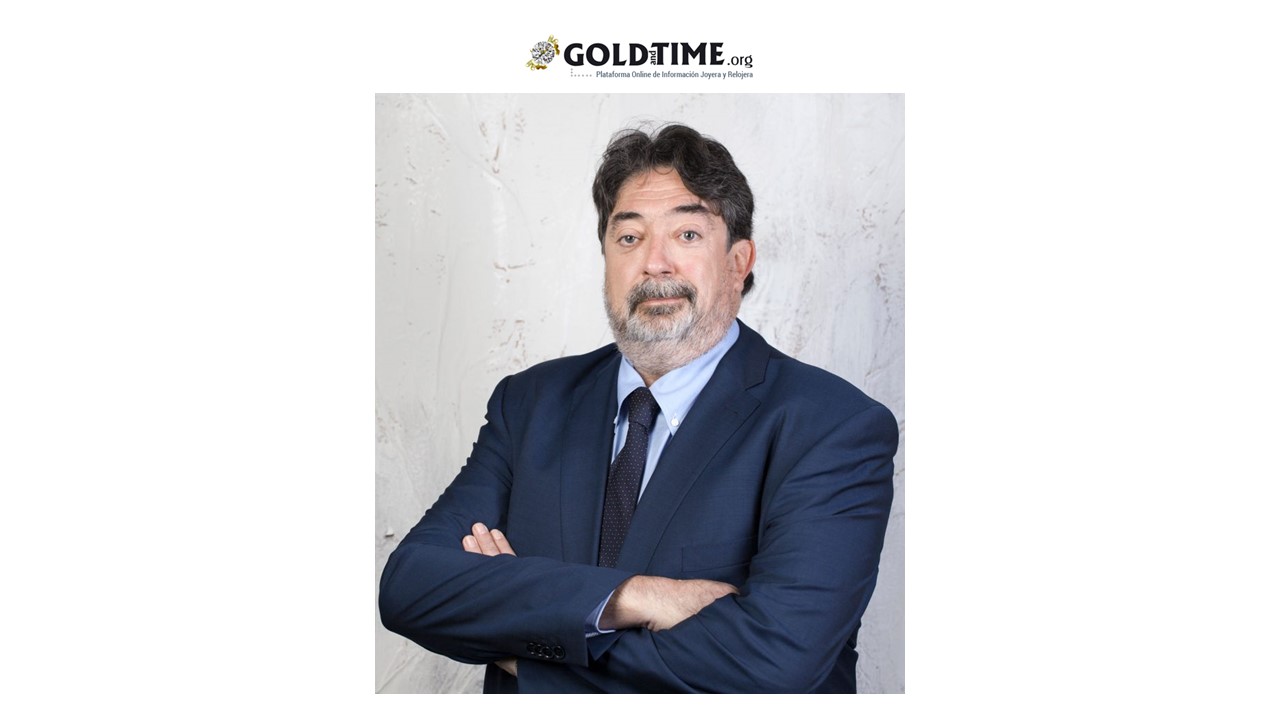The president of the Facet company has undoubtedly been one of the protagonists of this pandemic, making the headlines of numerous national media with his commitment to the return to production in Spain and specifically in Cordoba. The businessman reviews his career and also highlights his commitment to associations, as vice-president of the Association of Jewellers of Catalonia and a member of the board of directors of the Spanish Association of Jewellers.
Facet began his career in 1987 as a diamond wholesaler and in 2005 he moved on to designing and selling high quality jewellery. In the year 2000, the euro entered the market, which led to a drop in consumption in Europe, while at the same time the borders were opened to the entire Asian jewellery industry, which opened the door to the gradual dismantling of all European factories. At that time we were in the midst of exporting the diamond business model; we had a subsidiary in Paris, another in London and our customers, in those countries and in Spain, were asking us to send the small stones to their suppliers in Asia, mainly in China.
That’s when we started to see that the market was changing. Diamond polishing centres were moving from Antwerp and Israel to India. At that time we were by far the largest wholesalers in Spain. We sold 30 million, the next competitors sold 4. With such a higher purchasing capacity, a product with a higher added value was needed. We did tests and found manufacturing in India very interesting because that is where our diamond suppliers were. What remained was to make quality jewellery and in this sense we made a great human effort to transfer the knowledge of great Spanish jewellers to India and set up this factory, which continues today. The design has also always been Spanish and always In-house, with designers on staff and excellent creative direction since 2005 by Esther López.
Note: I think [the Spanish Confederation of Jewellery] is totally unnecessary and does not contribute anything. It is made up of other associations or guilds, in the old-fashioned way, where “lifetime” managers take on the functions of the presidents and the presidents perpetuate themselves in the position
Is it essential to invest in technology to make a difference?
Without a doubt. We have a great technological component. We currently have six registered patents relating to manufacturing systems and different systems for setting, cutting diamonds, etc. We have always been on the path of differentiation and technology, or rather innovation, which plays an essential role. Innovation, lateral thinking, disruptive creation… is a type of life and work philosophy where we feel comfortable. Note that the name of our company is Facet JewellerySolutions, which indicates precisely our attitude and our principles.
Moving on to the diamond market, how have you experienced the price controversy?
The reality is that the price of the diamond has not fallen, it maintains its value, and although you hear many things like “great opportunities” when it comes to the truth, it remains because bear in mind that from March to August there have been hardly any sales by the large mining companies or market movement. Rapaport made a mistake in March by publishing some price lists with a significant fall and after a stop it took them up again with prices that were more in line with reality after a few weeks, but this last publication was not used by anyone.
What are the international markets that are best responding to this crisis?
There has been an important consumption of high-end jewellery, mainly because big competitors such as travel have stopped working. From August until now we have seen a global growth of 10% over the previous year, which has surprised us a lot because of the unexpected. The 80% of our production is dedicated to export: Germany, Austria, Switzerland, Holland, Belgium, USA, France… These markets are solid and we have noticed a lot this that commented the lack of international trips. In the case of Spain, the diamond continues to be the king. What happens is that in our country there is a market that is clearly changing, undergoing restructuring, and because it also depends to a great extent on the income from tourism that is ‘frozen’ today.
There has been an important consumption of high-end jewellery, mainly because big competitors such as travel have ceased to operate. From August until now we have registered a global growth of 10%
The return to production in Spain has been greatly applauded by the sector. Why did you decide on Cordoba as a production centre?
As I mentioned before, we have had the factory in India for 15 years and with a quality comparable to that of Europe, but the problem is production capacity. When the Covid arrives and the subsequent reopening, we find that we cannot meet all the commitments we have and we have to make a move. And the truth is that now I cannot imagine starting from scratch in a foreign country, analysing laws, regulations… And on the other hand, Córdoba was an old acquaintance of FACET. We have had commercials, we have sold to all the manufacturers who worked with diamonds… that is why we came here as soon as we could travel and here we have stayed, inaugurating a few weeks ago a plant in which more than 50 people work. Cordoba is a strategic cluster where there is a lot of talent and which also has a magnificent jewellery training school.
And does it compensate financially for this relocation?
Relocation once had its advantages but now, return has another series of tremendous advantages, it has nothing to do with it. Firstly, because of the higher value of a product with the Made in Spain label and therefore, Made in Europe. Secondly, logistically it is another world compared to Asia and you are ‘living’ in the factory. It’s not like in India where you go for one week a month and depend on other circumstances. Here everything depends on yourself.
As vice-president of the Jewellers’ Association of Catalonia, what role can associations play in this crisis?
Well, a very important role. I am not only in the JORGC, I am also part of the board of directors of the Spanish Association of Jewellers (AEJPR) and this shows that I believe that the associations are doing an essential job to improve the sector, between all of us. And also with an extra effort to take away hours of work, of sleep and of the family totally free by conviction, to row among all. The associationism is fundamental above all to defend the companies from the administrations and to give voice to the sector in the legislative changes.
Speaking of associations… What do you think of the recently formed Spanish Jewellery Confederation?
Time puts everyone in their place. I think it is totally unnecessary and does not contribute anything. We have an association AEJPR formed by companies, a college of jewelers JORGC formed by professionals, people who are dedicated to jewellery … and now there is a Confederation that is formed by other associations or guilds, the old way, where the managers “life” assume the functions of the presidents and the presidents are perpetuated in office. With the creation of the JORGC in 2001, these bad practices disappeared in Catalonia. But for this to happen, an exercise in democratic transparency is needed, with light and stenographers.
There are some associations that do not have a website, nor do they publish any information… in my opinion I do not know very well who they represent because behind these associations there is very little basis and it seems to me a ‘toast to the sun’. I think they are not interested in associationism to improve the sector, beyond personal interests. But, well, let’s hope they achieve something positive for our industry. I think that they will hardly be able to contribute anything to improve the sector… with difficulty.

